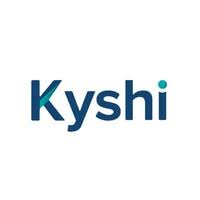Nigerian-owned and London-based fintech, known as Kyshi, opens a cross-border platform for African online merchants and businesses.
Kyshi is a fintech company with a focus on the African continent. It recently released a beta version of its platform called “Kyshi for Business,” which aims to assist businesses in transacting across multiple countries.
These countries include the United Kingdom, the United States of America, Canada, and China, as well as several African countries such as Nigeria, Ghana, Kenya, South Africa, and Senegal.
The financial technology company with its headquarters in the United Kingdom, which was established by Ayo Akindele in July 2020, has raised a total of $420,000, with the most recent funding of $100,000 being raised in May 2022.
Read also: Egyptian Camel Venture opens $16 million fintech fund to support startups
The platform offers solutions to a variety of problems that arise for firms when they attempt to conduct transactions across international borders, including regulatory requirements and the management of foreign currencies.
It allows for the tracking of transactions in real-time, the formation of virtual accounts, and the processing of foreign payments in over one hundred countries.
Accounting interfaces are also supported by Kyshi for Business, allowing enterprises to maintain tabs on their financial dealings and transactions easily. Kyshi also offers a mobile app marketplace known as Kyshi Connect.
This marketplace makes it possible for online merchants in Africa to take diaspora payments from the millions of Africans who live in the United Kingdom, the United States, the European Union, and Canada.
What Transactions on Kyshi entails
On all purchases made through Kyshi Connect, including airtime, data plans, health plans, auto/gadget insurance, utility bills, movie/event tickets, shipping, and other services, the company provides a cashback bonus of 2% to 3%.
The platform that Kyshi offers promises to be a one-stop solution for businesses who are looking to conduct cross-border transactions. Additionally, it offers African internet merchants a new channel through which they may increase their consumer base.
The company is marketing itself as a reliable partner for conducting business across international borders, and it is inviting other companies to participate in the beta version of its platform.
How to Prevent Scams During Transactions
Put an end to unwanted phone calls and text messages by blocking them. Take the necessary precautions to prevent unwanted phone calls and screen out undesirable text messages.
If someone unexpectedly asks you for your personal or financial information, you should refuse to comply with that request. Honest businesses will never contact you through phone, email, or text message and ask for personal information such as your Social Security number, bank account number, or credit card number.
Even if you get what appears to be a legitimate email or text message from a company that you regularly do business with, you should avoid clicking on any links in the communication. Instead, you should communicate with them through a website that you are confident with. You might also try looking up their telephone number. Do not call the number that was given to you by them or the number that appears on your caller ID.
Try not to give in to the impulse to act right away. Honest companies will give you sufficient time to consider your options. Swindlers will try to get you to comply with their demands to make a payment or hand over your personal information.
Be aware of the methods con artists use to get you to pay. Never give money to a person who demands that you pay them with a cryptocurrency, a wire transfer service such as Western Union or MoneyGram, or a gift card. Also, you should never deposit a cheque and then wire money to another person.
Hold up and have a conversation with someone you can rely on. Tell someone else, such as a friend, a member of your family, or a neighbour, what has occurred before you take any more action. It’s possible that if you discuss it with other people, you’ll realize that it’s a fraud.
